Quick links –
Schedule
•
Keynotes & Talks
•
Panels
TS1
•
TS2
•
TS3
•
TS4
•
TS5
•
TS6
•
TS7
WTD
•
WUW
•
XR-Experience
•
Pre-Symposium
•
Click on the image below to open it in a new window in full size.
Times specified in Brasilia Time (BRT), UTC -3.


Prof. Dr. Dieter Schmalstieg
Graz University of Technology, Austria.
Talk Title: Situated Analytics in Augmented Reality
Talk Abstract: Situated visualization differs from conventional visualization on desktop computers, because it is delivered in a manner that is specific to a situation, such as a physical place or a concrete time. Similarly, situated analytics extends data-driven sensemaking tools (e.g., Excel, Tableau) to be used away from the desktop. New devices such as the Hololens are a good foundation to deliver situated visualization and situated analytics. This talk will discuss several selected examples and formulate a research agenda for the new emerging field.
Bio:
Dieter Schmalstieg is full professor and head of the Institute of Computer Graphics and Vision at Graz University of Technology, Austria. His current research interests are augmented reality, virtual reality, computer graphics, visualization and human-computer interaction. He received Dipl.-Ing. (1993), Dr. techn. (1997) and Habilitation (2001) from Vienna University of Technology. He is author and co-author of over 400 peer-reviewed scientific publications with over 20,000 citations and over twenty best paper awards and nominations. His organizational roles include associate editor in chief of IEEE Transactions on Visualization and Computer Graphics, associate editor of Frontiers in Robotics and AI, member of the steering committee of the IEEE International Symposium on Mixed and Augmented Reality, chair of the EUROGRAPHICS working group on Virtual Environments (1999-2010), key researcher of the K-Plus Competence Center for Virtual Reality and Visualization in Vienna and key researcher of the Know-Center in Graz. In 2002, he received the START career award presented by the Austrian Science Fund. In 2008, he founded the Christian Doppler Laboratory for Handheld Augmented Reality. In 2012, he received the IEEE Virtual Reality technical achievement award, and, in 2020, the IEEE ISMAR Career Impact Award. He was elected as Fellow of IEEE, as a member of the Austrian Academy of Sciences and as a member of the Academia Europaea.

Reginé Gilbert
NYU Tandon School of Engineering, New York.
Talk Title: Accessible XR
Talk Abstract: This talk will introduce Accessibility in XR. We will discuss opportunities we have to create spaces and experiences for our present and future selves.,
Bio:
Reginé Gilbert is a user experience designer, educator, and international public speaker with over 10 years of experience working in the technology arena. She has a strong belief in making the world a more accessible place—one that starts and ends with the user.
Regine’s areas of research are digital accessibility, inclusive design and immersive experiences.
In 2019, Regine’s first book, Inclusive Design for a Digital World: Designing with Accessibility in Mind was released through Apress publishing.
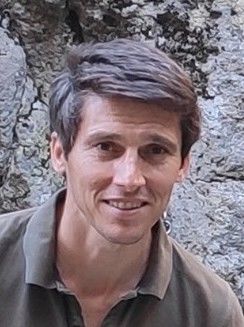
Hugo Proença
University of Beira Interior, Portugal
Talk Title: Advances in Visually Interpretable Biometric Recognition
Talk Abstract: There is a popular adage that states that “a picture is worth more than 1,000 words”. Complex ideas are known to be conveyed in a more effective way by a single still image than by a verbal description. Among the many examples in the literature supporting this idea, we highlight Leonardo da Vinci’s, who wrote that a poet would be "overcome by sleep and hunger before being able to describe with words what a painter is able to depict in an instant" or Napoleon Bonaparte, who is supposed to have said that “un bon croquis vaut mieux qu'un long discours". In this talk, we will discuss the development of methods to simultaneously (and jointly) “recognize” objects in images and “interpret” their decisions. In particular, we consider the biometric (periocular) recognition problem. In practice, the idea is to obtain classification models that not only infer class (ID) information , but also provide local and global visualizations of the data that justified the decision: e.g., by providing synthetic representations of the input data, that - in a human understandable way - justify why a pair of samples is/is not from the same person. Such “visually interpretable recognizers” have various applications, such as: 1) support human-decision processes in domains such as forensics, where the results of one analysis should be communicated in a human-understandable way to a jury or a judge; 2) improve biometrics feature engineering, by providing cues about the features that are of most interest to provide good decisions; 3) drive future data collection protocols, by providing a good understanding of the value of each data segment privileged by the recognition system; and 4) augment trust, by showing insights that fit the usual human understanding of the recognition problem, even for people with no knowledge in data science.
Bio: Hugo Proença (SM'12), B.Sc. (2001), M.Sc. (2004) and Ph.D. (2007) is an Associate Professor in the Department of Computer Science, University of Beira Interior and has been researching mainly about biometrics and visual-surveillance. He was the coordinating editor of the IEEE Biometrics Council Newsletter and the area editor (ocular biometrics) of the IEEE Biometrics Compendium Journal. He is a member of the Editorial Boards of the Image and Vision Computing, IEEE Access and International Journal of Biometrics. Also, he served as Guest Editor of special issues of the Pattern Recognition Letters, Image and Vision Computing and Signal, Image and Video Processing journals.

Magy Seif El-Nasr
Vice Chair of Serious Games, University of California at Santa Cruz, USA
Talk Title: A User-Centric and Data-Driven Approach to Game Design
Talk Abstract: Games, especially Serious Games, have, for many years, been used as applications for entertainment, education, training, crowdsourcing, as well as platforms for understanding human behavior, which creates opportunities for making great societal impacts. The potential social impact of these environments elevates the importance of developing methods that can enhance the player engagement during and after production as well as evaluate the value of these designs in the long term. Towards these goals, I will discuss various visualization and behavior analysis tools and innovative methods we have developed and used over the past decade. I will also discuss a case study where these tools and methods are used. I will discuss how these tools and methods enabled us to discover design problems that impacted players’ engagement, adherence, and motivation. I will then conclude by discussing results from our current studies investigating the use of user and data-centric approaches in current esports tools used for training and engagement.
Bio: Magy Seif El-Nasr is a Professor in Computational Media at the University of California, Santa Cruz, where she directs the Game User Interaction and Intelligence (GUII) Lab. Dr. Seif El-Nasr earned her Ph.D. degree from Northwestern University in Computer Science in 2003. Her research focuses on two goals (a) developing automated tools and techniques for authoring, adapting, and personalizing virtual environments (e.g., interactive narrative, believable characters, and visuals), and (b) developing evidence-based methodologies to measure the effectiveness of game environments through the development of novel indepth behavior mining and visual analytics tools. She worked in collaboration with several game companies both in the serious as well as the entertainment game spaces. She published the first book on the subject of game analytics, called Game Analytics: Maximizing the Value of Player Data. Her new book on Game Data Science follows her work on Game Data Science and Analytics, released October 2021. Her work is internationally known and cited in several game industry books. Additionally, she has received several awards and recognition within the game research community. Notably, she received four Best Paper Awards and one honorable mention. Further, she was named a HEVGA (Higher Education Video Game Alliance) Fellow. She also serves as an associate editor for IEEE Transactions on Games, IEEE Transactions on Affective Computing, and Human Computer Interaction.

Priscila Ariel
PO e Pesquisadora de Tecnologia e Inovação na Globo
Talk Title: Realidade Virtual e Aumentada em Produções Virtuais na Televisão
Bio:
Doutoranda em Computação Gráfica na PUC-Rio. Fez Mestrado e Bacharelado em Ciência da Computação na UERJ. Tem experiência nas áreas de computação gráfica, visão computacional, realidade virtual, realidade aumentada, produção virtual e inteligência artificial. Atualmente coloca em prática todos esses conhecimentos no laboratório de inovação da Globo, o Mediatech Lab, atuando como PO e Pesquisadora de Tecnologia e Inovação.
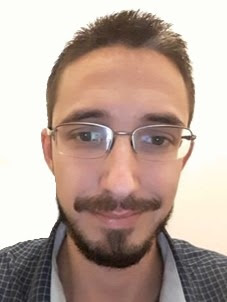
Diego Barboza
Instituto SENAI de Inovação em Sistemas Virtuais de Produção
Talk Title: Aplicações de Realidade Virtual e Aumentada em projetos de P&D para a Indústria
Bio:
Mestre em Computação (Computação Visual e Interfaces) e Doutor em Computação (Redes e Sistemas Distribuídos e Paralelos), ambos pela Universidade Federal Fluminense (UFF). É pesquisador e desenvolvedor nas áreas de simuladores virtuais, multimídia, realidade virtual e aumentada e jogos. Atualmente trabalha em projetos de simulação virtual, soluções de software para a Indústria 4.0 e projetos de P&D no Instituto SENAI de Inovação em Sistemas Virtuais de Produção.
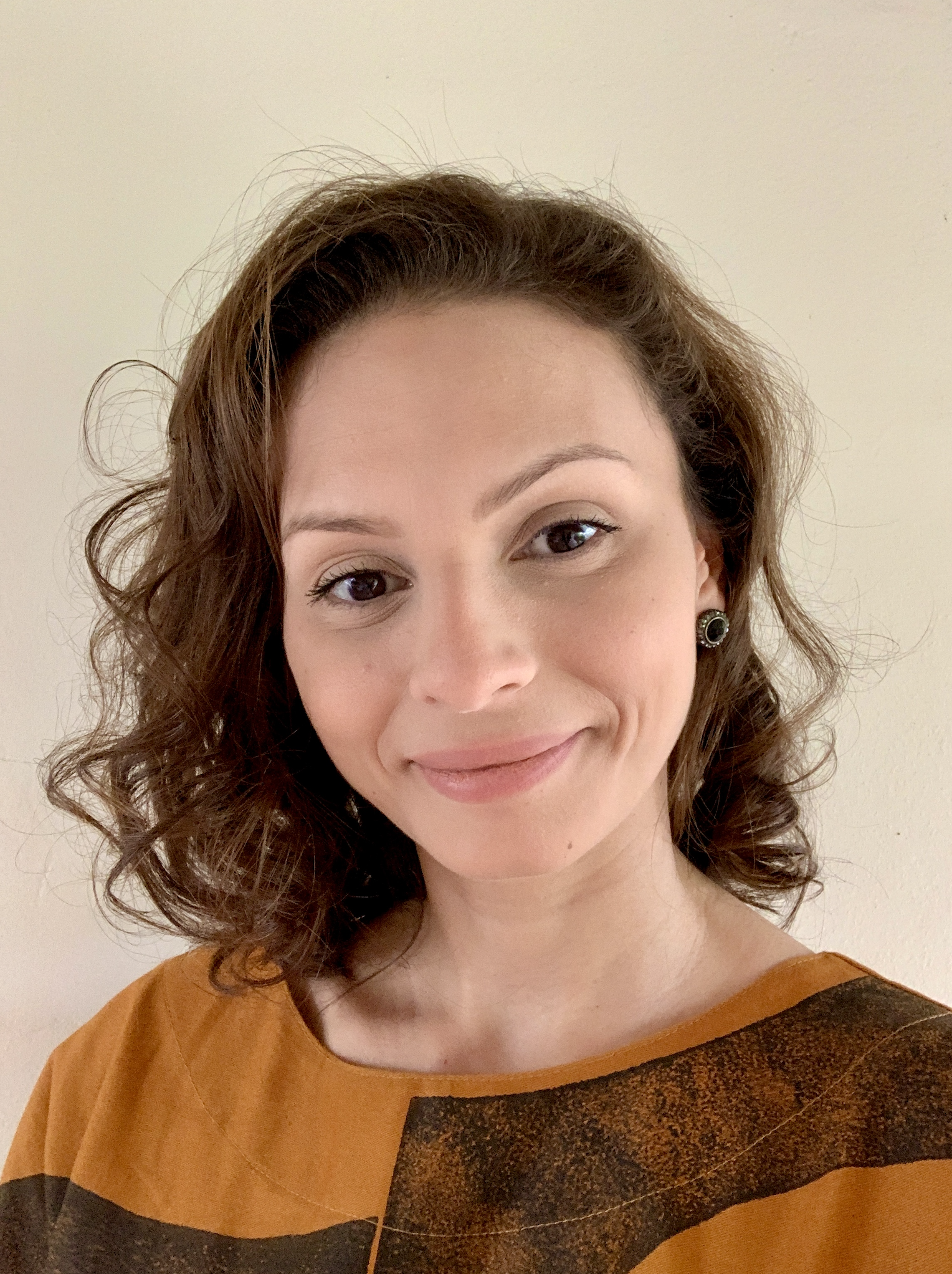
Alice Santos
Senior Product Designer do Sidia - Instituto de Ciência e Tecnologia
Talk Title: O papel do designer no universo de Realidade Aumentada
Bio:
Formada em Design Gráfico (UFAM, 2007) e Design de Interiores (WYDEN, 2018), possui especialização em Design de Interação (FUCAPI, 2015). Atuando desde 2003, teve a oportunidade de trabalhar em diversas áreas do Design, do analógico ao digital. Colaborou em projetos de marcas globais como Nokia, Microsoft e Samsung e há 4 anos faz parte do time de UX & Design do maior Instituto de Tecnologia do Brasil – Sidia. Trabalhando com Tecnologias Emergentes, desenvolve soluções para aplicações em dispositivos vestíveis de Realidade Aumentada.
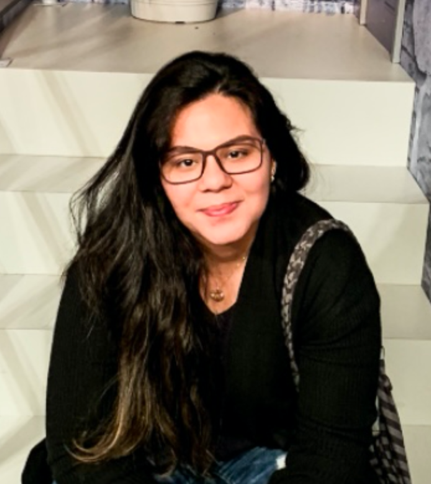
Jessica Regina de Freitas Pinheiro
Designer de produto no Sidia
Talk Title: Projetando para AR: Desafios da nossa realidade sem canvas
Bio:
Pós-graduada em Design e Mercado, mestranda em Design de Artefatos Digitais, design thinker, entusiasta da inovação e tecnologias emergentes voltado para o usuário.

Maurílio Silva
Líder técnico no Sidia
Talk Title: XR: Desafios e Oportunidades
Bio:
Engenheiro de Software e conferencista com interesses em Realidade estendida (XR), Games, IA e PDI, com atuação no desenvolvimento de software para dispositivos móveis desde 2004. Mestre em Ciência da Computação pela UFCG – Universidade Federal de Campina Grande. Atualmente é Líder Técnico no time de Solutions & UX do Sidia - Instituto de Ciência e Tecnologia, localizado em Manaus (AM), atuando em projetos de realidade mista (MX) e realidade aumentada (AR).
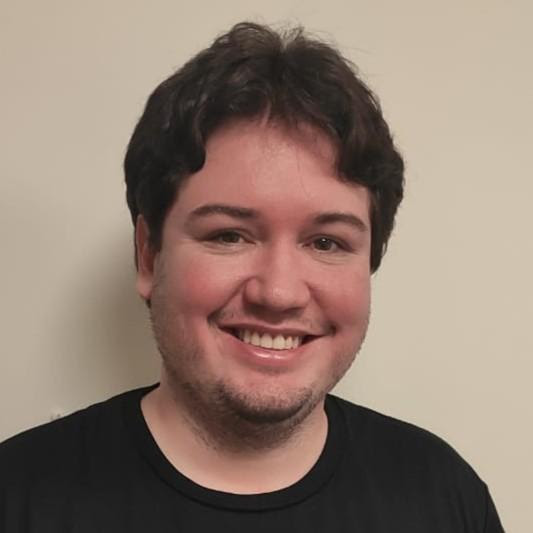
André Oliveira
Desenvolvedor de software no Sidia
Talk Title: Ingresso.XR - O que o mercado procura e como começar?
Bio:
Desenvolvedor de Software com interesse em jogos digitais, arquitetura e engenharia de software. Formado com honras em Sistemas para Internet pelo Centro Universitário de João Pessoa (UNIPÊ), pós-graduando em desenvolvimento de games pelo Centro Universitário SENAC. Atualmente é desenvolvedor de software atuando com aplicações de realidade aumentada (AR) no time de Solutions & UX do Sidia - Instituto de Ciência e Tecnologia, localizado em Manaus (AM).
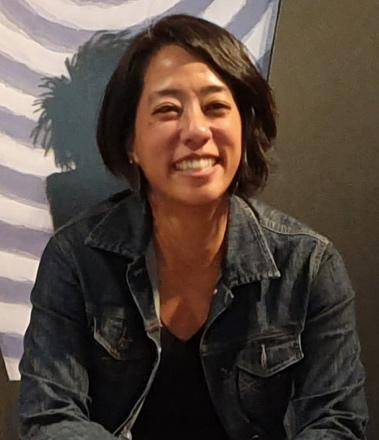
Cristiane Arakaki
Pesquisadora de Experiência de Usuários no Sidia
Talk Title: UX Research em AR: da descoberta à validação
Bio:
Designer gráfica com interesse e atuação no design digital e temas relacionados, é Mestre em Comunicação e Doutora em Artes Visuais pela Universidade de Brasília. Atualmente faz parte do time de Solutions & UX do Sidia - Instituto de Ciência e Tecnologia, como Pesquisadora de Experiência de Usuários (UX Research) para projetos de Realidade Virtual (VR) e Realidade Aumentada (AR). Acredita que o Design potencializa o uso das Tecnologias para a melhoria da vida das pessoas, seja em melhores produtos e serviços, seja no acesso à informação.

Vanessa Camargo
Universidade Federal de Uberlândia - UFU
Talk Title: Perspectivas de inovação no mundo virtual e aumentado
Bio:
Mestre em Computação Gráfica e Tecnologias Imersivas pela UFU, graduada em Ciência da Computação, passou 10 anos na carreira acadêmica até se encantar com o poder das comunidades de startups e do empreendedorismo. Atuou, então, como gestora de incubadora, community manager e com desenvolvimento de negócios B2B. Hoje atua como líder de startups para Google Cloud na América Latina, unindo, assim, suas principais paixões: tecnologia, startups, educação e impacto.
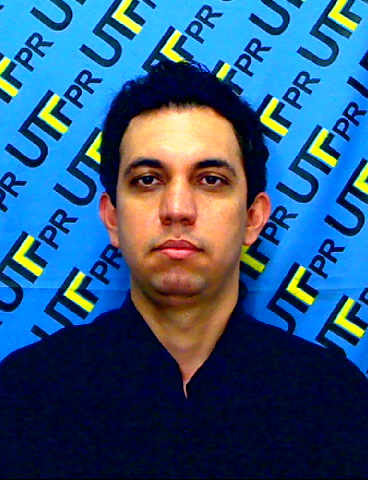
Dr. Cléber Gimenez Corrêa
Professor na Universidade Tecnológica Federal do Paraná (UTFPR)
Talk Title: Experiência no desenvolvimento de projetos de Realidade Virtual e Realidade Aumentada na academia
Bio:
Doutor em Engenharia de Computação (2015) pela Escola Politécnica da Universidade de São Paulo, Mestre em Ciência da Computação (2008) pelo Centro Universitário Eurípides de Marília (UNIVEM), mantido pela Fundação de Ensino Eurípides Soares da Rocha, Graduado em Tecnologia em Processamento de Dados (2002) pela Faculdade de Tecnologia de São Paulo (FATEC). Atua como professor na Universidade Tecnológica Federal do Paraná (UTFPR), campus Cornélio Procópio. Tem experiência nas áreas de: teste de software e interação humano-computador, especialmente interação háptica em sistemas de Realidade Virtual.
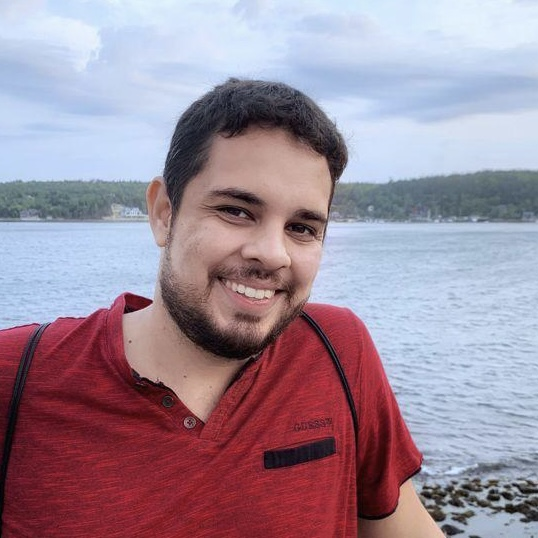
Dr. Thiago Porcino
Pesquisador na Dalhousie University
Talk Title: Livrando-se do desconforto na Realidade Virtual: uma abordagem científica
Bio:
Concluiu seu doutorado em 2021 (UFF), segue a linha de pesquisa de Cybersickness (um dos maiores problemas para a massificação de conteúdos e dispositivos na realidade virtual). Ele também possui mestrado em Computação (UFF), MBA em Engenharia de Computação Avançada (UFRJ) e graduação em Ciência da Computação (UGF). Possui aproximadamente 12 anos de experiência na área profissional de computação gráfica, onde passou a maior parte do tempo na Rede Globo em importantes projetos premiados internacionalmente. Atuou nos últimos 2 anos como pesquisador na Federação das Indústrias do Estado do Rio de Janeiro (Firjan), com pesquisa e desenvolvimento de sistemas virtuais e de realidade aumentada. Atualmente está morando no Canadá e trabalhando na posição de pesquisador de pós-doutorado na Dalhousie University.
Rudieri Dietrich Bauer: Santa Catarina State University - UDESC; Thiago Luiz Watambak: Santa Catarina State University - UDESC; Salvador Sergi Agati: Santo Antônio; Marcelo da Silva Hounsell: Santo Antônio; Andre Tavares da Silva: Santa Catarina State University - UDESC
João Marcelo Xavier Natario Teixeira: UFPE; Alexandre de Queiroz Burle: UFPE; Arthur de Andrade Almeida: UFPE; Thiago Buarque de Gusmao Lafayette: UFPE; Vinicius Lima Ventura: UFPE; Vitor Mendes Carvalho: UFPE; Veronica Teichrieb: CIn/UFPE
Natalia Teixeira: UNIOESTE; Bianca Lahm: UNIOESTE; Fabiana Frata Furlan Peres: UNIOESTE; Claudio Roberto Marquetto Mauricio: UNIOESTE; João Marcelo Xavier Natario Teixeira: UFPE
Tiago Trotta: UFSJ; Marcelo de P. Guimarães: UNIFESP; Alexandre Fonseca Brandão: University of Campinas; Leonardo Rocha: Ufsj; Rogerio L. Iope: Unesp; Jose Remo Ferreira Brega: Sao Paulo State University; Diego Dias: Federal University of São João del-Rei - UFSJ
Antonio Sousa: Universidade Federal do Ceará; Rubens Fernandes Nunes: Federal University of Ceara; Creto A Vidal: Federal University of Ceará; Joaquim B. Cavalcante-Neto: Federal University of Ceara; DANILO BORGES DA SILVA: Universidade Estadual do Piauí
Victor Rocha: Federal University of Ceara; Louise Brandao: Federal University of Piaui; Yuri Nogueira: Federal University of Ceará; Joaquim B. Cavalcante-Neto: Federal University of Ceara; Creto A Vidal: Federal University of Ceará
Artur Tavares de Carvalho Cruz: UFPE; João Marcelo Xavier Natario Teixeira: UFPE
Douglas Bandeira Ivo: Universidade Federal do Ceara; Joaquim Bento Cavalcante-Neto: Universidade Federal do Ceara; Creto Augusto Vidal: Universidade Federal do Ceara
David Scherfgen: Hochschule Hannover; Jonas Schild: Hochschule Hannover
Elvis Hernandes Ribeiro: federal University of São João del-Rei - UFSJ; Marcelo de P. Guimarães: UNIFESP; Jose Remo Ferreira Brega: Sao Paulo State University; Alexandre Fonseca Brandão: University of Campinas; Diego Dias: Federal University of São João del-Rei - UFSJ
Thiago Buarque de Gusmao Lafayette: UFPE; Alexandre de Queiroz Burle: UFPE; Arthur de Andrade Almeida: UFPE; Vinicius Lima Ventura: UFPE; Vitor Mendes Carvalho: UFPE; Alana Elza Fontes da Gama: UFPE; João Marcelo Xavier Natario Teixeira: UFPE; Veronica Teichrieb: UFPE
Gabriel Sierra Picón: Universidad Militar Nueva Granada; Carlos Alberto Rocha Castaño: Universidad Militar Nueva Granada ; Wilson J. Sarmiento: Universidad Militar Nueva Granada
Filipe Fernandes: IF Sudeste MG - Federal Institute Southeast of Minas Gerais; Diego Castro: COPPE/UFRJ - Federal University of Rio de Janeiro; Claudia werner: COPPE/UFRJ - Federal University of Rio de Janeiro
Yuri Fernando Tiecher Sefrin: Universidade Estadual do Oeste do Paraná; Claudio Roberto Marquetto Mauricio: UNIOESTE; Fabiana Frata Furlan Peres: UNIOESTE
Kody Wood: Ontario Tech University; Alvaro Joffre Uribe Quevedo: Ontario Tech University; Lina Peñuela: Universidad Militar Nueva Granada; Sharman Perera: Ontario Tech University; Bill Kapralos: Ontario Tech University
Aline Menin: Inria Sophia Antipolis; Rafael Torchelsen: Federal University of Pelotas; Luciana Nedel: Federal University of Rio Grande do Sul
Renan Trévia: Pontifical Catholic University of Rio Grande do Sul; Márcio Sarroglia Pinho: Pontifical Catholic University of Rio Grande do Sul
Silas Franco dos Reis Alves: Ontario Tech University; Alvaro Uribe Quevedo: University of Ontario Institute of Technology; Delun Chen: University of British Columbia; Jon Morris: JDQ Systems; Sina Radmard: JDQ Systems
Franklin Giovani Bastidas Cuya: Federal University of Rio Grande do Sul; Renan L Martins Guarese: RMIT; Carlos Guilherme Carlos Johansson Johansson: Federal University of Rio Grande do Sul; Mariane Giambastiani: UFRGS; Yhonatan Iquiapaza: Universidade Federal do Rio Grande do Sul; Victor Adriel de Jesus Oliveira: St. Poelten University of Applied Sciences; Luciana Nedel: Federal University of Rio Grande do Sul (UFRGS); Anderson Maciel: Federal University of Rio Grande do Sul
Júlia Tannús de Souza: Federal University of Uberlandia; Caroline Valentini: Universidade Federal de Uberlândia; Eduardo Lazaro Martins Naves: Federal University of Uberlandia; Edgard Afonso Lamounier Jr.: Federal University of Uberlândia
Md Baharul Islam: Bahcesehir University; Arezoo Sadeghzadeh: Bahcesehir University
Jarbas Jácome: Universidade Federal de Pernambuco; Arlindo Gomes: Universidade Federal de Pernambuco; Willams de Lima Costa: Universidade Federal de Pernambuco; Lucas Silva Figueiredo: Universidade Federal de Pernambuco; Jader Abreu: Universidade Federal de Pernambuco; Luana Porciuncula: Universidade Federal de Pernambuco; Pedro K. Brant: Universidade Federal de Pernambuco; Luís E. M. Alves: Universidade Federal de Pernambuco; Walter F M Correia: Universidade Federal de Pernambuco; Veronica Teichrieb: CIn/UFPE; Jonysberg P. Quintino: UFPE; Fabio Q. B. da Silva: Universidade Federal de Pernambuco; Andre L M Santos: Universidade Federal de Pernambuco; Helder de Sousa Pinho: SiDi
Ufuk Celikcan: Hacettepe Universitesi; Emre Avan: Hacettepe Universitesi; Tolga K. Capin: Hacettepe Universitesi; Hasmet Gurcay:Hacettepe Universitesi
Tainã Ribeiro de Oliveira: Ifes-Instituto Federal do Espírito Santo; Matheus Moura da Silva: Ifes-Instituto Federal do Espírito Santo; Rafael Antonio Nepomuceno Spinassé: Ifes-Instituto Federal do Espírito Santo; Gabriel Giesen Ludke: Ifes - Instituto Federal do Espírito Santo; Mateus Ruy Soares Gaudio: Ifes-Instituto Federal do Espírito Santo; Guilherme Iglesias Rocha Gomes: IFES - Instituto Federal do Espírito Santo; Luan Guio Cotini Cotini: Ifes - Instituto Federal do Espírito Santo; Daniel Vargens: Instituto Federal do Espírito Santo; MARCELO QUEIROZ SCHIMIDT SCHIMIDT: Ifes - Instituto Federal do ES; Rodrigo Varejao Andreao: Ifes-Instituto Federal do Espírito Santo; Mário Mestria: Ifes - Instituto Federal do Espírito Santo
Lucas Henna Sallaberry: Universidade de São Paulo; Romero Tori: University of Sao Paulo; Fatima L S Nunes: University of São Paulo
Daniel Perazzo: UFPE; Natália Souza Soares: UFPE; Victor Gouveia de Menezes Lyra: UFPE; Gustavo Camargo Rocha Lima: UFPE; Alana Elza Fontes da Gama: Federal University of Pernambuco; João Marcelo Xavier Natario Teixeira: UFPE; Veronica Teichrieb: CIn/UFPE
Luis Guilherme Silva Rodrigues: São Paulo State University; Diego Dias: Federal University of São João del-Rei - UFSJ; Marcelo de Paiva Guimarães: Federal University of São Paulo (Unifesp); Alexandre Fonseca Brandão: University of Campinas; Leonardo Rocha: Ufsj; Rogerio L. Iope: Unesp; Jose Remo Ferreira Brega: Sao Paulo State University
Alyson M. de C. Souza (UFRN), Roberta Barrocas (Leibniz-Institut für Wissensmedien), Korbinian Moeller (Loughborough University), César Rennó-Costa (UFRN)
Thiago Porcino (UFF), Daniela Trevisan (UFF), Esteban Clua (UFF)
Renan Vinicius Aranha (USP), Fátima L. S. Nunes (USP)
Gabriel Cyrino (UFU), Najara Zago (UFU), Roberta Aramaki (UFU), Alexandre Cardoso (UFU), Alcimar Soares (UFU), Edgard Lamounier (UFU)
Reidner Cavalcante (UFU), Alcimar Soares (UFU), Edgard Lamounier (UFU)
Larissa Fernandes (UTFPR), Eduardo Filgueiras Damasceno (UTFPR)
Joyce Tavares (PUC-SP), Diogo Cortiz (PUC-SP)
Bruna Cons (UERJ), Rosa Maria E. Moreira Costa (UERJ)
Carlos Quijano Chavez (UFRGS), Luciana Nedel (UFRGS), Carla M.D.S. Freitas (UFRGS)
Anielle Martins de Azevedo (UFPE), Thiago B. G. Lafayette (UFPE), Danillo Rodrigues Aguiar (UFPE), Alana Elza Fontes da Gama (UFPE)
Lucas Sallaberry (USP), Romero Tori (USP), Fátima L.S. Nunes (USP)
Lucas Oliveira (IFG) e Alexandre Silva (IFG)
Samuel Antunes Vieira (UPF) e Rafael Rieder (UPF)
Luiz Rogério Scudeletti (Unesp), Alexandre Fonseca Brandão (Unesp), Diego Roberto Colombo (Unesp) and José Remo Ferreira Brega (Unesp)
Ana Regina Cuperschmid (Unicamp)
Raphaela Ferreira et. al. (FAUeD - UFU)
Zildomar Carlos Felix (UFPB) and Liliane S. Machado (UFPB)
Pedro Mario Cruz and Silva (Nvidia)
Michelle Mayumi Tizuka (UFF), Aline dos Santos Ribeiro (TEIA Consultancy), Natacha Ruback da Silva (Escola Municipal Vital Brazil)
Mario Nagamura (USP) e Prof. Marcelo Zuffo (USP)
Mario Nagamura (USP) e Prof. Marcelo Zuffo (USP)
The Pre-Symposium is an event that happens on the first day of the Symposium on Virtual and Augmented Reality (SVR). The first edition of the Pre-Symposium was held in 2004 during the seventh edition of SVR, in São Paulo. It aims at presenting an overview of Virtual Reality (VR) and Augmented Reality (AR): concepts, main characteristics of VR and AR systems, technologies (hardware and software) and applications, as well as innovation trends using VR and AR, related to Internet of Things, Deep Learning, Machine Learning, Cybersecurity, Cybersickness, etc.
This year, the Pre-Symposium will be an open event to help introduce students and professionals of different areas to VR and AR. Lectures on the above-mentioned topics will be offered by invited professionals of the field. Thus, those who attend the Pre-Symposium and register to SVR will be able to take better advantage of the courses, lectures and other activities of the symposium.
A book on the fundamentals of VR and AR, a collaborative effort, coordinated and edited by the organizers of the Pre-Symposium since 2017 with the help of invited volunteer authors, can be accessed at (only in portuguese):
Link.
This book is receiving continuous suggestions from the academic community and from the community of practitioners and will be updated eventually by chosen professionals with recognized competence and knowledge in the area.
More information:
Creto Vidal - UFC - Brazil - cvidal@dc.ufc.br
Henrique Galvan Debarba - IT University of Copenhagen - Denmark - hend@itu.dk

Prof. Romero Tori
Escola Politécnica da USP
Bio:
Romero Tori (romerotori.org) é autor do livro “Educação sem Distância” e publica, no blog de mesmo nome (EsemD.org) e em seus perfis das redes sociais, matérias e informações sobre usos de novas tecnologias na educação, presencial, virtual ou híbrida. É professor e pesquisador da Escola Politécnica da USP e do curso de especialização a distância “Computação Aplicada à Educação”, também na USP. É bolsista de produtividade do CNPq, em tecnologia educacional.
Prof. Dr. Romero Tori
Prof. Dr. Romero Tori